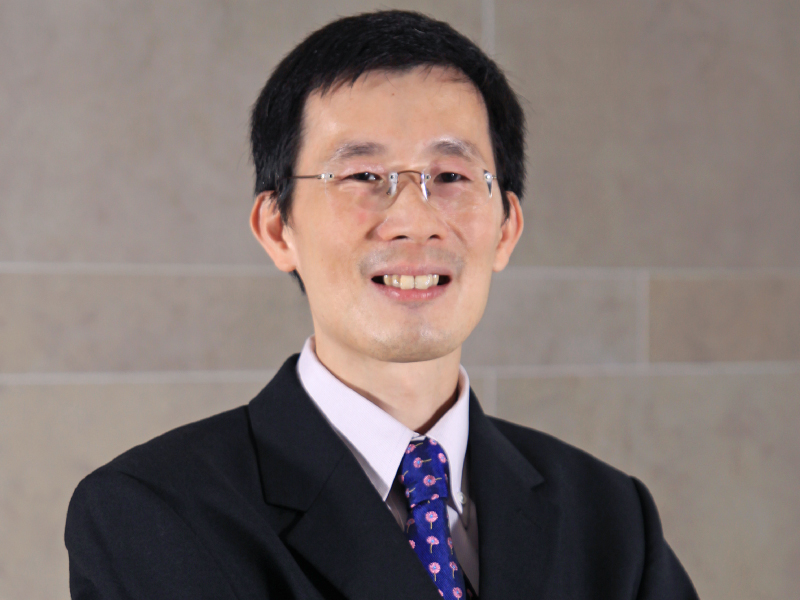Cancer Immunotherapy – Immune System Unplugged: Releasing Cancer’s Grip with Checkpoint Inhibitors

Using the body’s immune system to attack cancer cells has been a focus of intense research for several decades, but recent breakthroughs in the field have moved immunotherapy to the forefront of new cancer treatments. This article about antibodies that release “checkpoints” in immune cells marks the first in a series about different types of cancer immunotherapy.
Antibodies are known as “magic bullets” in cancer treatment because of their many possible functions. Unlike the conventional big three of cancer treatment – chemotherapy, radiotherapy, and surgery – the fundamental characteristic of an antibody is its specificity. All antibodies are alike in this aspect, but each group attacks cancer cells in its own way. Some block signalling pathways that cancer cells depend on to grow. Some act as signposts to the immune system, directing them to kill cancer cells through a process known as antibody-dependent cell-mediated cytotoxicity (ADCC). Others carry chemotherapeutic drugs or radioisotopes to the target cancer cell, where they offload their toxic payloads. The newest group of antibodies currently making headlines for its amazing effects in various cancers is the immune checkpoint inhibitors.
Unlike the other types of antibodies, checkpoint inhibitors do not directly target cancer cells. Rather, their modus operandi involves “releasing the brakes” on the immune system. In healthy people, the immune system is carefully regulated by a balance of activating and inhibitory signals. In cancer patients, however, a preponderance of inhibitory signals upsets this balance, rendering their immune systems dazed. These inhibitory signals come from checkpoint proteins expressed on cancer cells, telling approaching immune cells to halt their attack. Checkpoint inhibitors block these proteins. With the inhibitory signals removed, the immune cells are free to kill.
Currently, at least four checkpoint inhibitors have been approved by the U.S Food and Drug Administration and at least 17 more are being tested in clinical trials. The two most commonly targeted checkpoints proteins are CTLA-4 and PD-1/PD-L1. Indeed, the first checkpoint inhibitor to be approved (Yervoy® or ipilimumab) targets CTLA-4 and was the first drug in history to extend the survival of patients with metastatic melanoma. Since then, focus has shifted to targeting the PD-1/PD-L1 pathway, as these proteins are found within the tumour and tumour microenvironment and antibodies against them may not incite a generalised immune response compared to anti-CTLA-4 antibodies, and hence may be more tolerable. Three antibodies targeting PD-1/PD-L1 have been approved: Opdivo® (nivolumab), Keytruda® (pembrolizumab), and Tecentriq® (atezolizumab).
While checkpoint inhibitors are very promising, they are not a panacea and have been approved only for selected cancers such as advanced melanoma, non-small cell lung cancer, kidney cancer, Hodgkin lymphoma, squamous cell head and neck carcinoma, and bladder cancer. Worldwide, trials on checkpoint inhibitors in a broad range of cancers have shown a 20% to 40% response rate.
At the National University Cancer Institute, Singapore (NCIS), several trials are ongoing to test the effectiveness of these and other antibodies targeting other immune checkpoint proteins for a range of cancer types. According to Adjunct Professor Goh Boon Cher, Head of the Department of Haematology-Oncology, NCIS, the average response rate is around 20%, although better rates may occur in patients with higher levels of the checkpoint proteins. At first look, this figure may not seem high. However, trials have only been conducted in patients with advanced, metastatic, or relapsed cancers that do not respond to any conventional treatment. Not only that, the response achieved by checkpoint inhibitors may be durable, with prolonged progression-free survival rates in patients.
Another benefit of checkpoint inhibitors is that they are easy and convenient to administer, requiring intravenous infusion for just 30 minutes, every 14 to 21 days in the case of anti-PD1 antibodies. Patients do not require premedications and the antibodies are usually administered as outpatient therapy. In addition, anti-PD1 checkpoint inhibitors are relatively safe, and do not cause the usual side effects as chemotherapy.
When side effects do occur, they are usually immune-related (eg, joint pain, colitis, diarrhoea, and thyroiditis) and can usually be treated with steroids. Only in rare cases (<5%) do severe adverse events occur, although these can be unpredictable and difficult to treat, Adj Prof Goh cautions. Some of these side effects require consultations with specialists from other disciplines, like immunologists, endocrinologists, gastroenterologists, and dermatologists. However, there have been reports of higher rates of serious side effects in trials elsewhere, ranging from 20% to 50%, although those were also largely manageable*.
On the other hand, antibodies are costly; currently, each dose of checkpoint inhibitors set patients back around $9,000, and doctors do not yet know the best way to predict responses, and the most optimal scheduling and the duration of treatment. While patients on clinical trials are treated for free, most patients will have to pay out of pocket when checkpoint inhibitors are brought into the clinic as standard treatment. As more are approved and therapy is standardised, insurance plans should be put in place to lessen the financial burden.
Like any other cancer therapy, patients can develop resistance to immune checkpoint inhibitors. Each checkpoint inhibitor is, after all, targeting just one pathway. A cancer cell needs only to depend on another pathway to inhibit the immune system again. Thus, cancer treatment requires a multi-targeted approach. Recognising this, NCIS is heading several trials that combine more than one checkpoint inhibitor, or a checkpoint inhibitor with chemotherapy, or small molecule inhibitors.
Much research is still needed to improve and standardise therapy for patients. We need to better understand the immune system in both normal and cancerous states. Modulating the tumour microenvironment is another area to focus on as that can affect how cancers respond to therapy and understanding mechanisms of resistance. In the clinics, biomarkers for response and prognosis will be critical to guide clinicians in administering treatment.
*Footnote: In one trial using ipilimumab (Yervoy) in advanced melanoma, adverse events occurred 20% of the time. Combination therapy led to more side effects. In another group of melanoma patients, the combination of ipilimumab and nivolumab (Opdivo) lead to adverse events in 54% of the patients.
References
1. O’day, S.J., et al., Efficacy and safety of ipilimumab monotherapy in patients with pretreated advanced melanoma: a multicenter single-arm phase II study. Annals of Oncology, 2010. 21(8):1712-7.
2. Postow, M.A., et al., Nivolumab and ipilimumab versus ipilimumab in untreated melanoma. The New England Journal of Medicine, 2015. 372(21):2006-17.
3. Lawrence, M.S., et al., Mutational heterogeneity in cancer and the search for new cancer-associated genes. Nature, 2013. 499(7457):214-8.

Adjunct Professor Goh Boon Cher, Head of the Department of Haematology-Oncology, NCIS.
Facts Box:
• Lung squamous cell carcinoma (SCC) is particularly responsive to checkpoint inhibitors
• Previously, patients with this cancer type were usually resistant to chemotherapy, and fared poorly
• Although doctors cannot yet predict who will respond to checkpoint inhibitors, generally, cancers harbouring many mutations are more likely to respond well because they are more “visible” to the immune system
• Examples of such cancers are melanoma, lung cancer, and bladder cancer; the three that respond best to checkpoint inhibitors
• Other such cancers are stomach cancer, colorectal cancer, head and neck cancers, and cervical cancer
“Using checkpoint inhibitors is similar to training up an army to fight against the cancer instead of employing mercenaries, which are what chemotherapies are like – you send them in to do the job, then they leave.” – Adjunct Professor Goh Boon Cher
